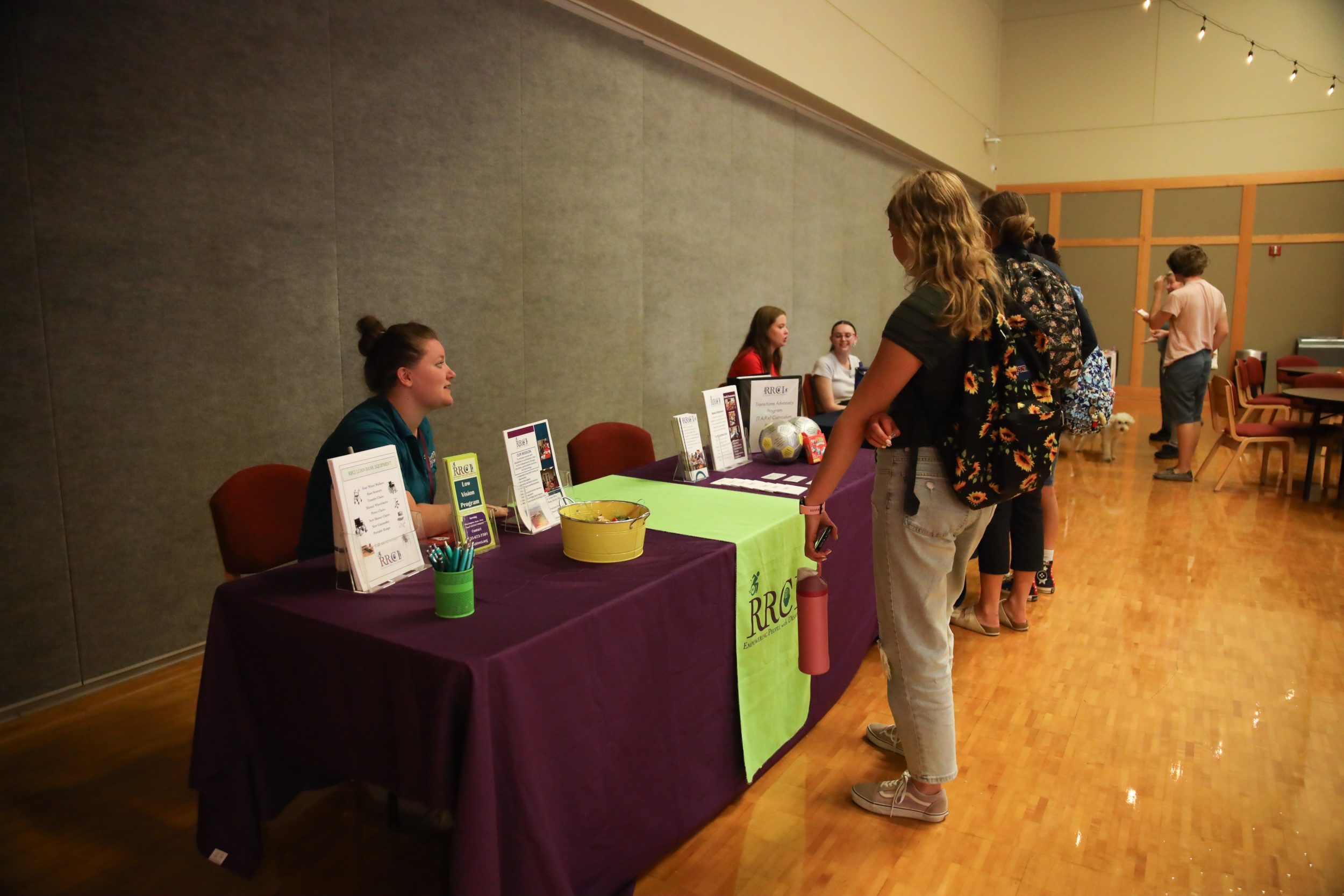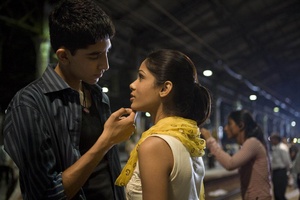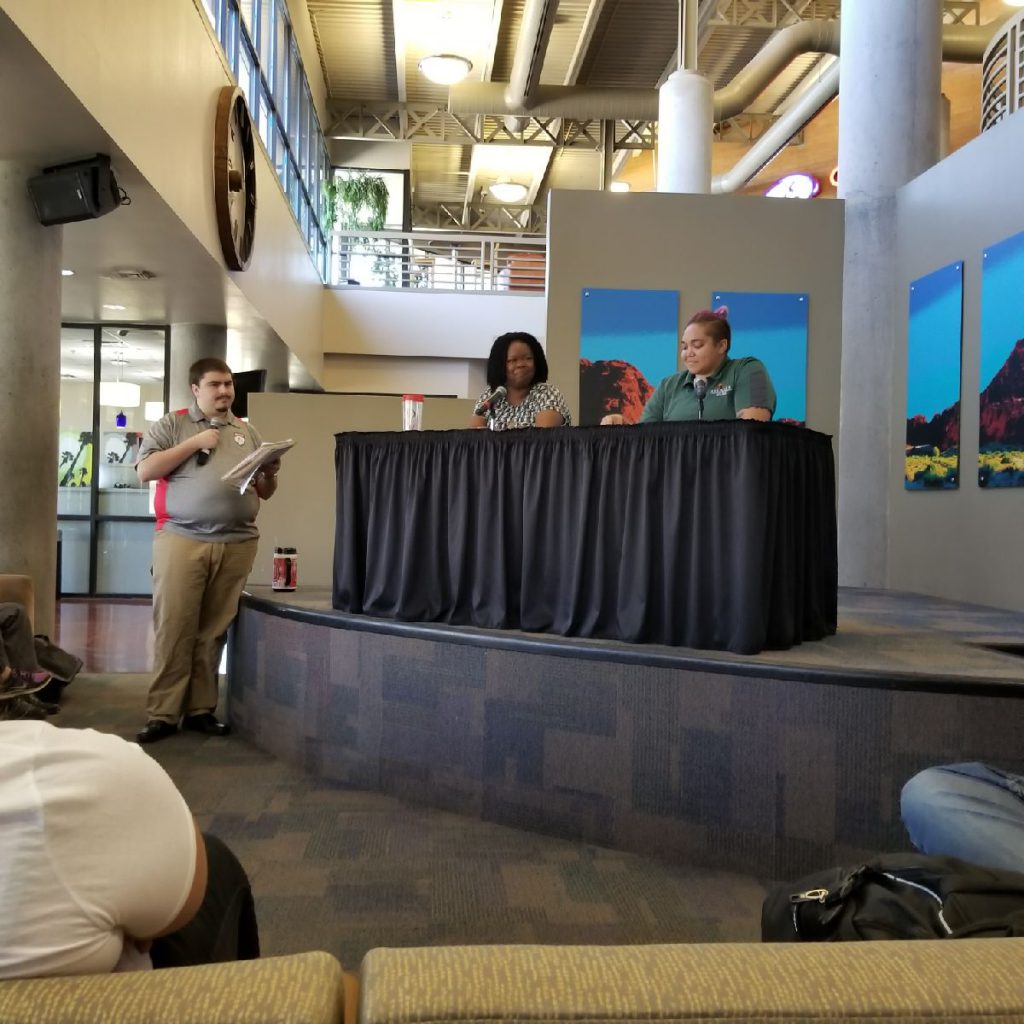The Neurodiversity Fair, hosted by the Club of Diverse Minds, was a chance for the community to learn more about people part of this group.
The club wanted to raise awareness and give people the opportunity to ask questions, meet people and get access to resources.
Neurodiversity is the idea of understanding that everyone sees the world differently, whether that be the way things are seen, heard or interpreted.
Founder of the Club of Diverse Minds, Ian Kelly, a junior communications studies major from Chicago, said he believes “disability” should be viewed as “ability.” In some cases, it gives them the ability to do more, whether that be artistically, scientifically or mathematically.
This fair was created to raise awareness for individuals who see the world and life differently. There are many neurological or developmental differences and learning disabilities including:
- ADHD
- Autism
- Bipolar disorder
- Dyslexia
- Tourette Syndrome
President of the Club of Diverse Minds, Rebeka Felsted, a freshman psychology major from Collegedale, Tennessee, said: “We [neurodivergent people] are ignored. We are often put down. There is a lot of discrimination just by the way that we act. Assumptions are huge and first impressions are also huge, and the way to help solve this is to help more people understand that this is just our way of life.”
The club leaders wanted to make a space for any and all students to be able to feel safe, respected and wanted.
Vice President of the Club of Diverse Minds, Andi Bates, a senior sociology major from Twin Falls, Idaho, said: “Education is the basis of justice for neurodiversity and disability. People need to know and understand these issues before we’re going to make progress, and so this event is about education and getting people that information as well as fun and playing games.”
The fair included booths from TURN, Techie For Life, RRCI and the Booth Wellness Center. The booths had resources from the community, who are willing to give help, advice or other opportunities to those who are disabled or neurodiverse.
With the booths, there were small carnival games such as Jenga, spin the wheel, knock ‘em down ball toss and more. Light refreshments like muffins, lemonade, chips and cookies were also offered.
Felsted said: “With the food specifically, we chose food that was neurodivergent friendly. A lot of people don’t realize that we have texture problems, this is particularly with Autism. A lot of us have struggles with texture.”
Throughout the time of the fair, people were given the opportunity to get prizes from a drawing, playing the games or spinning the wheel. These prizes consisted of neurodivergent-friendly items including:
- fidget toys
- plushies
- fuzzy blankets
- Nintendo Switch
- coloring books
- weekly planner
Each of the prizes is significant to the club, but the planner had significance to the club runners. They felt it was important to include this as a prize because writing down plans or things that need to be done can help people focus and remember.
Kelly said: “Part of the reason we do weekly meetings as a club is because we want to keep consistency going so people can stay on track. If we do it bi-weekly, we might forget which week we’re meeting, so a big part of it is just organization and being consistent as a club.”
The Club of Diverse Minds meets each week on Mondays at 7:30 p.m. in the Udvar-Hazy building on the second floor in the Idea Room.
Kelly said, “Just like any marginalized group, we want to raise awareness and help people who are neurodivergent just feel included and get involved on campus.”




